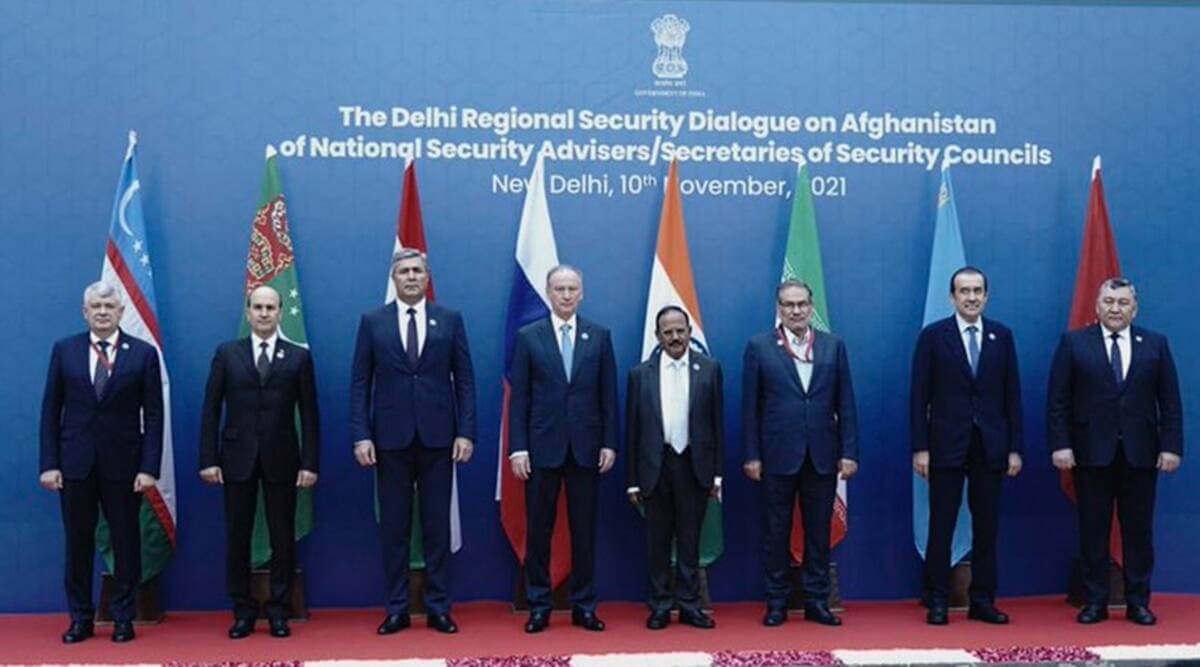On Wednesday, Indian National Security Advisor Ajit Doval hosted his counterparts from seven regional powers to discuss the ongoing conflict in Afghanistan. Representatives from Iran, Kazakhstan, Kyrgyzstan, Russia, Tajikistan, Turkmenistan, and Uzbekistan, participated in the discussions.
The meeting is the third edition of the Regional Security Dialogue involving Afghanistan’s neighbours. It is the first time the group has convened after the Taliban took control over the country in August this year. The first two editions were held in 2018 and 2019 in Iran. It aims to conduct an in-depth review of the security situation of Afghanistan and advance peace and stability in the war-torn country.
Wednesday’s discussions focussed on the regional and global implications of the situation in Afghanistan. Specific attention was laid on the threats posed by terrorism, radicalisation, and drug trafficking. The leaders also highlighted the need to provide humanitarian assistance to the country.
According to the joint declaration published following the meeting, the representatives “expressed deep concern over the suffering of the people of Afghanistan arising from the security situation in Afghanistan and condemned the terrorist attacks in Kunduz, Kandahar and Kabul.” Further, they reiterated the need to prevent the war-torn country from becoming a safe haven for terrorists.
In addition, they spoke of the need to expeditiously form an “open and truly inclusive government” that sees representation from all ethnic and political minorities to further the national reconciliation process.
The leaders also expressed concern about the “deteriorating socio-economic and humanitarian situation,” specifically highlighting the need to protect “the fundamental rights of women, children and minority communities.”
Following the meeting, the seven heads of the National Security Councils called on Indian Prime Minister Narendra Modi and spoke of their individual perspectives on the Afghan crisis.
Modi appreciated the seven leaders’ attendance at the security dialogue despite the ongoing pandemic. He said that the Regional Security Dialogue would contribute to reviving Central Asia’s dedication towards moderation and countering extremism.
According to a release by the Indian Ministry of External Affairs: “[Modi] emphasised four aspects that countries in the region would need to focus on, in the context of Afghanistan: the need for an inclusive government; a zero-tolerance stance about Afghan territory being used by terrorist groups; a strategy to counter trafficking of drugs and arms from Afghanistan; and addressing the increasingly critical humanitarian crisis in Afghanistan.”
Responding to the discussions, the Taliban said that the meeting was in “its better interest.” The group’s spokesperson, Zabiullah Mujahid, said, “Though we are not present in this conference, we firmly believe that this conference is in the better interest of Afghanistan as the entire region is considerate of the current Afghan situation and the participating countries also must be thoughtful of improving and safeguarding the security situation in Afghanistan and helping the current government to ensure security in the country on its own.” He also said that the group remains hopeful that the “positive outcomes” of the discussions are effectively implemented.
Apart from the seven representatives who attended the meeting, India had also invited China and Pakistan to attend the conference, but was rejected by both countries. Curiously, China cited a “scheduling conflict” as the reason for its non-attendance in New Delhi, but then attended the Pakistan-led Troika Plus meeting in Islamabad just one day later.
SUMMARY: Delhi Regional Security Dialogue on Afghanistan
At the eight-nation meeting hosted in New Delhi, India underscored the regional implications of the Afghan crisis, calling for “unimpeded” aid to the country.
November 11, 2021

SOURCE: MINISTRY OF EXTERNAL AFFAIRS INDIA
